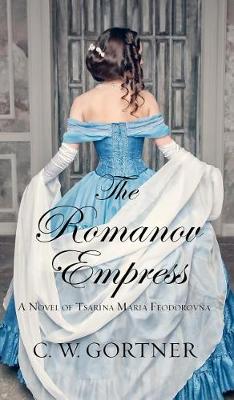Reviewed by gmcgregor on
That gives us roughly 50 years to cover, and there was a lot that happened in those years. Dagmar initially falls for and is betrothed to tsarevich Nicholas, and is enthusiastically preparing for her new life in Russia when Nicholas has a horse-riding accident and dies, but before he does he begs Dagmar and his younger brother Sasha to wed. They do, despite initial coolness on both of their parts, and the marriage is ultimately a happy and successful one. But this was a time of increasing instability in Europe, and after multiple attempts on her father-in-law's life, Tsar Alexander II is assassinated and Sasha becomes Tsar Alexander III. Sasha's reign is challenged by the same forces that ended his father's, but Maria stays mostly out of politics and turns her attention to charity, court life, and raising her children, and is particularly close to her eldest, Nicholas, whose mildness irritates his father. Neither Sasha or Maria want him to wed Alix, but when it becomes apparent that Sasha's kidney condition will take him sooner rather than later, they reluctantly consent so Nicholas can be married before he assumes the throne. Sasha's death makes him Tsar Nicholas II and his bride Tsarina Alexandra, and Maria tries to guide her son and his wife through continued social turbulence, but Alexandra will have none of it and turns to an obscure mystic called Rasputin for guidance after it becomes apparent that her youngest child and only son, Alexei, suffers from hemophilia. We all know how it goes from there.
Though I've read/heard about Nicholas, Alexandra, and their children (particular Anastasia), I'll admit my familiarity with any other Russian rulers besides Ivan the Terrible and Catherine the Great is non-existent. So even though "the grandmother" is always present in Anastasia stories, I literally had no idea who she was, and this book was a solid introduction to her. She lived in an era of such turbulence that she's a great lens through which to take a look at how Europe completely changed within one generation. The downside of that, from a novelistic perspective, is that since there is so much actual action to pack in, once you add in the interpersonal Romanov drama on top of the greater social shifts, that Maria ends up being kind of a passive, reactive character. Which isn't such a bad thing in and of itself, but when the writing is constantly telling us about Maria's high spirits and sense of mischief and all we see is a woman who's mostly pretty conventional and constantly placed in a position to be reactive rather than proactive, it creates a mismatch.
That being said, though, Maria does feel like a real person. Gortner indulges in some insta-love in her initial engagement to Nicholas, but I appreciate the way he built her relationship with Sasha over time, as a couple who barely knew each other when they married and grew their connection gradually. I also enjoyed the frenemy dynamic between Maria and her sister-in-law Miechen, whose actual roguish energy made Maria seem even more well-behaved and dutiful in comparison. With the time span this covers, and all the events it needs to touch, it almost feels more like a highlight reel than a portrait of a person, and comes off a little cluttered. I think some of the material could have been trimmed down a little, which would give it all a bit more room to breathe instead of feeling like we're hopping from major life event to major life event. It just never really takes off, and while it's a solid read, it's nothing more than that. It did serve to introduce me to several figures I'm hunting down actual biographies for, so there's that at least. If you're interested in Russia and the Romanovs, this is decent and worth reading. If that time and place doesn't hold any interest for you already, though, this is skippable.
Reading updates
- Started reading
- 24 July, 2018: Finished reading
- 24 July, 2018: Reviewed
